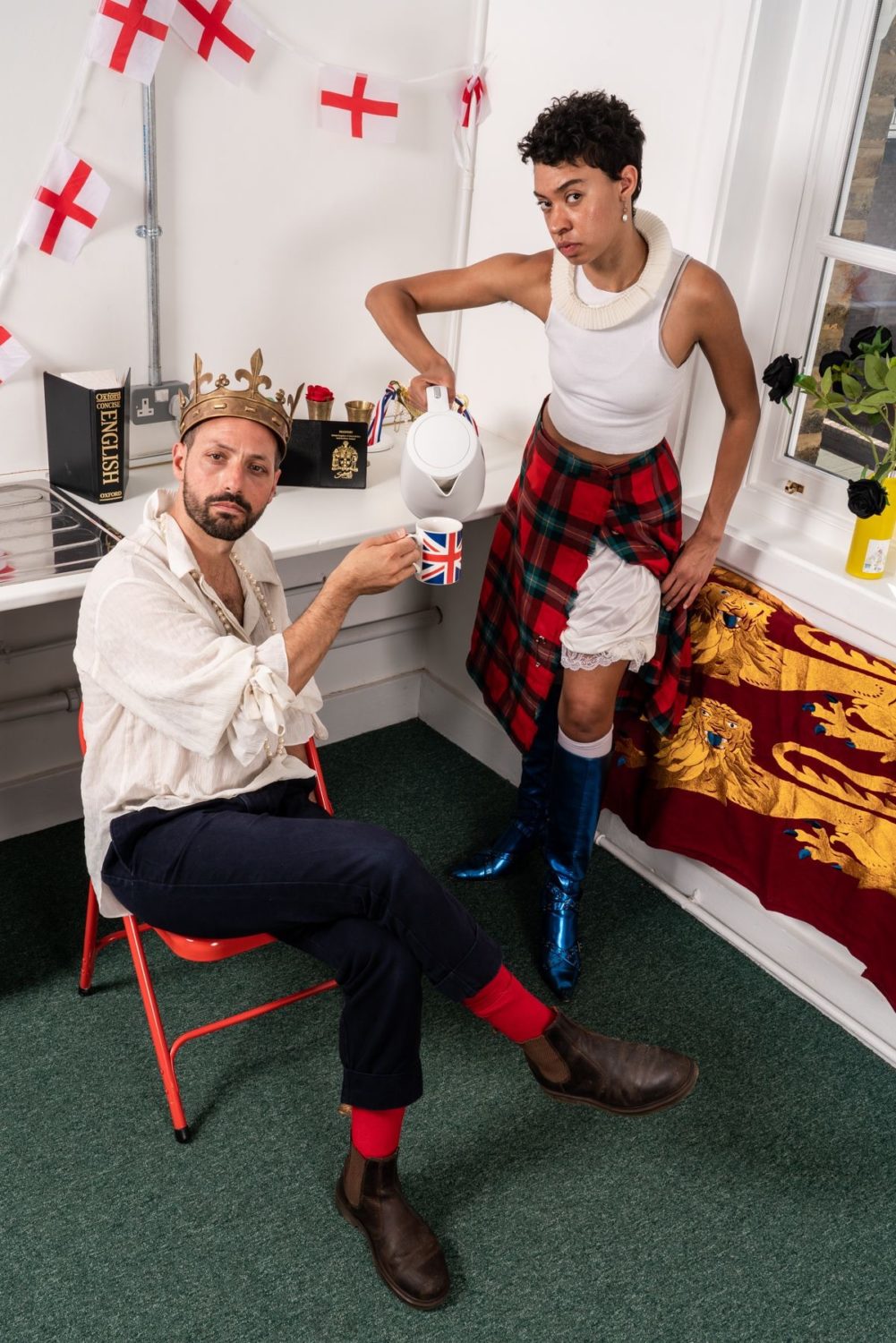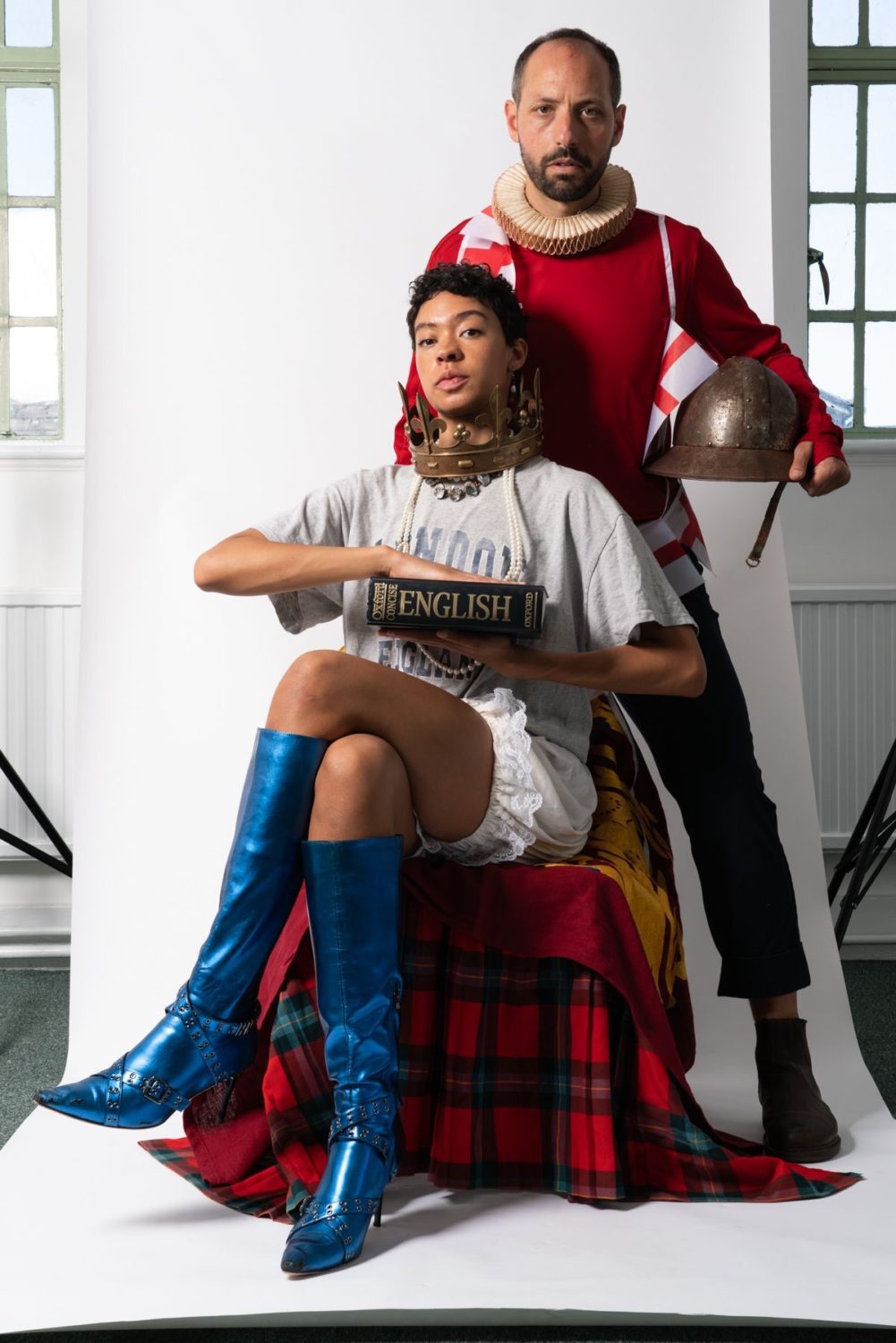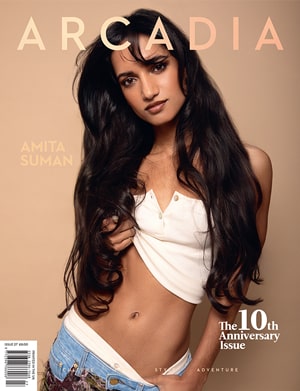
Phil and I met in 2019 when we were both cast in The Shakespeares’ Globe Ensemble. This was a group of 10 actors who, over a year, would take on five plays from Shakespeare’s History Cycle – a series following the ups and downs of the British Royal Family, from Henry the VI through the Wars of the Roses, and ending with Richard the III. Think: The Crown, but Elizabethan.
It was a massive undertaking and a rarity in the theatre nowadays; the experience recalled the repertory companies of the past – which are now almost all gone. It was also a poignant experience for us – in the wake of the Brexit vote, and the coming 2019 election (in which Brexit would be a determining issue), our multicultural and international company rehearsed plays which dealt explicitly with power and the building of “England”. We were all keen to re-discover how these historic plays would speak to the moment and explore how they were relevant to our modern lives and to the England we found ourselves in.
The summer season kicked off with the first trilogy in the Histories – the story of the vagabond prince Hal, who spends his days drinking in the pub while the country is engaged in a civil war, but then grows into a formidable leader when he quashes the rebellious forces in England, and extends his power into France.
On the first day of rehearsal, the cast gathered round a tiny model of the Globe theatre to see the first design of the set we would be performing on for 5 months. The miniature model theatre was covered in St George’s Flags. The cast started shooting sideways glances at one another, a few murmured affirming words to the designer, but then someone spoke up; “Not really sure how I feel about the implications of that Flag”. The flood gates opened. We debated whether the St George’s Flag could ever be detached from associations of racism, nationalism and hooliganism. So began a year of complicated and rich discussions about how to represent England today. Phil and I quickly found ourselves to be fast allies in these debates; not only agreeing about England and Englishness, but also about how Shakespeare fits into the national story.

Of course – as artists and actors, we both love performing Shakespeare. We have both found great freedom in performing his characters. The extreme emotions, dramatic turns, and poetry of the language are wonderful. However, being immersed in the Shakespeare establishment isn’t always liberating, and there are real limits on how deeply you can engage with a writer who is worshipped like a Saint. There’s a prevailing cultural message that Shakespeare’s genius is universal and untouchable. It also feels almost impossible to critically engage with Shakespeare while actually doing the plays; it’s a massive undertaking to get a Shakespeare play off the ground and the time needed to really unpack the plays thoroughly is rarely available in the rehearsal process. Many times during our year at the Globe, the exciting discussions and tensions that were brought up in the rehearsal room never made it to the stage. Phil and I would be having animated discussions about the violent, nationalistic language of Henry V, seconds before bursting onto the stage for a battle scene. It was a great year, but also incredibly frustrating; it felt like all the most interesting stuff was happening behind the scenes.
There, off stage, we were engaging with a critical analysis of Shakespeare, truly discovering which elements of his plays felt contemporary and which parts felt dangerous – in both good and bad ways. We started to dream about how we could harness the power and creativity of those discussions and get them on stage in some way. The result is our play English Kings Killing Foreigners, a lovingly biting dark comedy that pulls Shakespeare down off his pedestal for a real conversation. Our play is a subversive look at the Shakespeare rehearsal room dynamics – with a sprinkling of audience participation. We’re inspired by the Meta theatre of the moment – think Motive and the Cue and Ulster American, both filling theatres on the West End. Dark Comedy and Meta theatre felt like the perfect backdrop for our play because of the richness and the absurdity of layering contemporary identity politics over plays written 500 years ago. What does it even mean for a mixed-race gender queer 27 year old to play a Medieval King symbolising traditional English power?
To be clear, we are not saying that cross-racial or cross-gender casting shouldn’t happen – but we are more interested in the choices that are made between auditions and opening night to get that actor into that role. What is that journey? What does that performance look like? And who does it benefit? The answers to those questions are endlessly fascinating for us, and it’s a joy to take them out of the shadows of the wings, and to work them out live on stage with our audience.
Words by Nina Bowers and Philip Arditti
English Kings Killing Foreigners will be at the Camden People’s Theatre from April 25th until May 11th. For more information and tickets, please go to https://cptheatre.co.uk/whatson/English-Kings.







